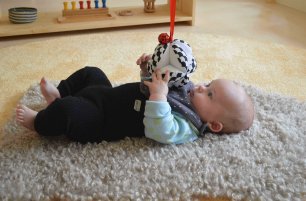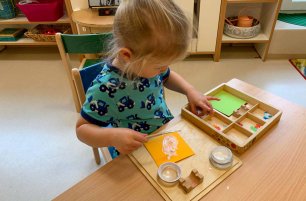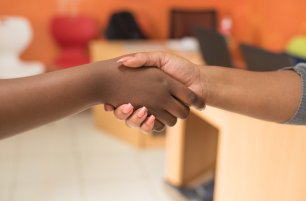Staff Interview with Amber Barrett
As a child, did you want to become a teacher, or anticipated becoming one?
I was your average kid - I didn’t mind school, but I didn’t love it, and I definitely did not want to be a teacher when I grew up. I was much more interested in the arts, so my top choices included being a portrait artist (specifically, drawing caricatures in the Silver Dollar City amusement parks!) or a hairstylist. Alternately, I wanted to be a veterinarian, which at least makes sense with my lifelong love for animals. However, I ended up studying English in college.
What about working in Europe?
I’ve always been interested in travel. I originally came to Prague 20 years ago to get my TEFL certification, and taught English to adults then. I fell in love with teaching children later, when I was working as a teaching assistant and one-on-one specialist back in Denver.
Can you share a memory from your childhood as it relates to school? What did your school look like?
I grew up in a very small town of just a thousand people. I clearly remember my early days of Kindergarten. My teacher had these inflatable letters that had faces and I was obsessed with those! We had a lot of free play in preschool and I have very good memories of it.
My 6th grade teacher, Ms. Trail, was a really interesting teacher. She seemed so cool and progressive and encouraged us to think outside the box, but mostly I remember her warmth. I’m still in touch with her which is so nice! 
Your teaching history includes traditional, Montessori, but also Waldorf and Reggio Emilia school environments. Was this an intentional choice? How would you relate/compare these methods?
My experience with the Waldorf and Reggio methods was with two year olds, and it felt like a good match at that time. I really appreciated the story-telling, the focus on nature, the gentleness of the approach. The children were learning through play and got to ask a lot of questions. It was an extremely Portland experience!
My work in the public schools of Denver was very specific in that it focused entirely on children with special needs. I loved it. The teachers were amazing and inspiring. Many of the children had significant challenges but received great support from them, and I was so impressed with the way the teachers addressed their needs, and how seen and respected the children felt.
Up until that point, I had been interested in Montessori but didn’t get to explore it until later, when I became an assistant in a Montessori environment. Everything impressed me - the materials, the freedom, the students’ inner motivation. Bringing my history as an individual aide meant I had to learn to step back and allow the children independence, but it also made me understand and appreciate the Montessori environment all the more.
You spent many years volunteering as an ESL teacher, particularly for immigrant and refugee students. What brought you to this work?
I’ve always been compelled to help people. Since I was young, I’ve been interested in the world outside of my immediate environment, and aware of the privilege and opportunities I’ve been lucky to have.
In college, I took a class in Immigrant Literature, which was absolutely fascinating. It really brought my interest to immigrant stories. I wanted to be a source of support for people who I knew needed it.
If you could switch your job with someone (for a day, for a year or for good), who would it be and why?
I’ve often thought about art therapy and how wonderful it is - not just teaching art, which is great by itself, but using it to help people through difficult situations like pain and grief. That might be something I’ll explore in the future.
I’ve also always been an animal lover, and while living in Portland (Oregon) learned there is such a career as an animal masseuse, mainly focusing on elderly animals or those with arthritis. The idea of becoming an animal masseuse – specializing in canines – is quite compelling to me!
What does your life outside of IMSP look like?
My partner and I have a dog so we’re often found walking the dog! We love music and attending concerts as well as exploring theatre options. Prague has a lot to offer! And, of course, we love to travel and explore new places. Next up for us this summer is a trip to Northern Norway where we will be in the Arctic Circle!

Do you have a life motto or a quote you particularly enjoy?
“Be kind whenever possible. It is always possible.” – The Dalai Lama
5 Favorite Podcasts!
As someone who’s always loved reading, I appreciate great storytelling and enjoy listening to stories as much as reading them. These are my top 5 favorite podcasts that satisfy my need for riveting stories about people, scientific topics, or food, to accompany me on long walks or road trips, and I highly recommend them all!
-
This American Life
-
Heavyweight
-
Snap Judgment
-
Radio Lab
-
The Splendid Table




